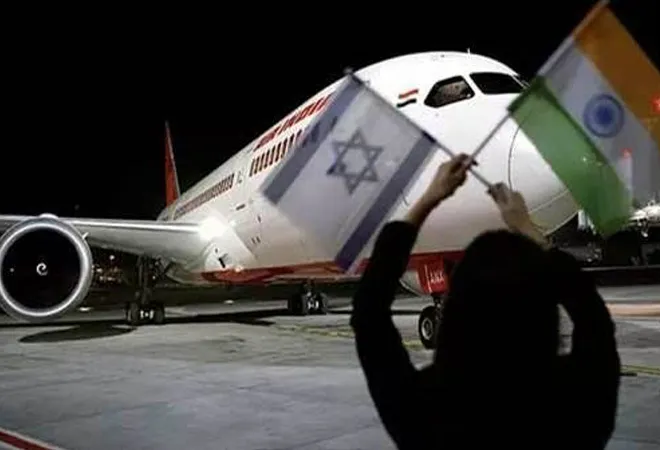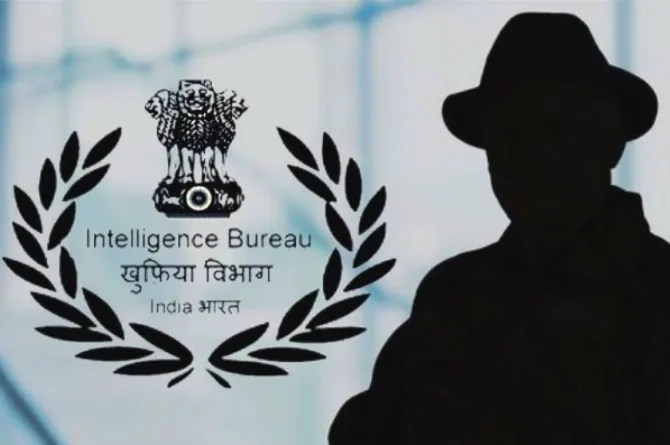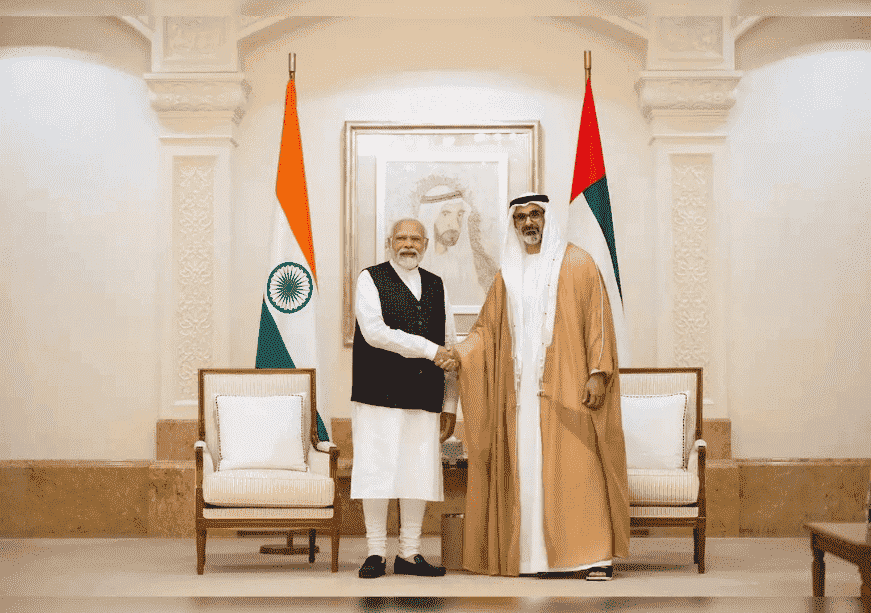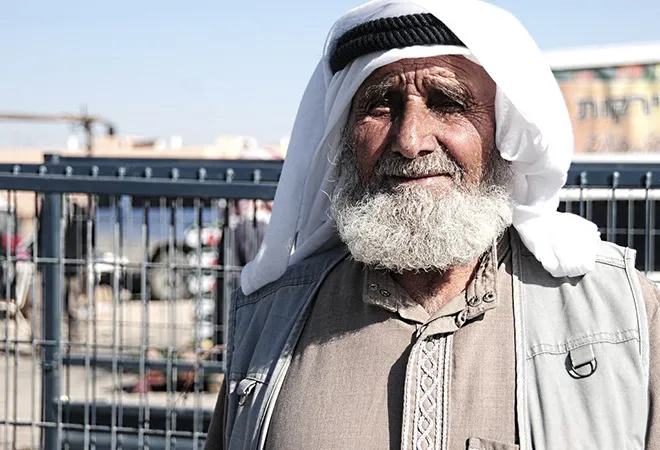At a time when SARS-COV2 virus has taken the entire world under its blanket, halting trillion dollars of trades and confining billions to their houses, Coronavirus has definitely brought world to a standstill. However, the pandemic could not slow down the pace of the rising bilateral cooperation between India and Israel. In fact, the two nations not only collaborated to beat the pandemic, but also brought each other closer in the time of need. Their friendship is certainly a yardstick for many others.
India inspired- No contact diplomacy
In order to contain the spread of Coronavirus in Israel, Prime Minister Benjamin Netanyahu encouraged Israelis to adopt the Indian style of greetings- Namaste, as opposed to mainstream handshakes. At a press conference in Israel, he spoke about considering small steps such as adopting the “Indian Namaste,” with proper demonstrations. He believed that embracing the Indian custom of greeting will help in slowing person-to-person contact and helping in mitigating the spread of the novel Coronavirus. He added “we love to embrace. We love to shake hands. We love to kiss. No more”.
In terms of soft power diplomacy, India has always aced the test in Israel. This recent development has proved the admiration both countries holds for each other. This is symbolic of invigorating partnership between India and Israel and opening up of major cultural exchanges.
Netanyahu dials ‘friend’ Modi
Prime Minister Narender Modi had a telephonic conversation with his counterpart from Israel to discuss the prominent effects of Coronavirus. Both countries are facing an upward trend in the rising Coronavirus outbreak. Though the number of cases in Israel are high, the number of deaths due to the virus in India is higher. Tackling this reality is becoming even more difficult for the two with challenging demand and supply of essential goods.
According to the statement released by the Ministry of External Affairs, both leaders had a discussion of ways to collaborate for assistance and countering the Coronavirus. “The leaders reviewed the excellent progress in bilateral relations. They also exchanged views on the global situation in the context of COVID-19 pandemic,” it said.
India exempts Israel from an export ban
Israeli Prime Minister Benjamin Netanyahu at a press release mentioned about reaching out to his ‘friend’ Narender Modi to stabilize “supply lines” of essential materials owing to the massive disturbance triggered by COVID-19. While reviewing the economic implications of the virus, PM Netanyahu told reporters, “I also spoke to the Prime Minister of India, my friend Narendra Modi. We are dependent on supply lines from various countries. We are looking into it all the time.”
In light of the lack of supplies, Israeli prime Minister Benjamin Netanyahu requested Narendra Modi to approve an exemption and allow ‘the exports of masks and pharmaceutical raw materials’ to Israel. This request was presented after India came to a decision of terminating the export of these products to meet its own domestic requirements considering the rapid spread of novel coronavirus. India approved to Netanyahu’s demand to supply them N95 face masks for medical teams and raw materials for the Israeli pharmaceutical industry.
India is a major exporter of raw materials of pharmaceuticals worldwide, and the Israeli pharmaceutical industry is heavily dependent for imports from India. The ban imposed by India could have created a shortage of medicines and masks in Israel as India is also the largest producers of face masks in the world. Many countries in the world are facing an acute shortage of masks due to a sudden rise in demand of face masks. India’s approval for exporting medical gears to Israel in the time of need exemplifies remarkable friendship between the two.
Israel’s support for Junta Curfew
The call for ‘Junta Curfew,’ by Indian Prime Minister Narendra Modi was a well appreciated step to accomplish the intention of the exercise that is central to handling COVID-19- ‘social distancing’. Such extraordinary steps are essential keeping in mind the upcoming challenging time. Israel, thus, extended its support to India for a Junta Curfew on March 22, to fight the Coronavirus outbreak.
Israeli Embassy to New Delhi shared pictures of their citizens endorsing India’s initiative of Junta Curfew with a hashtag #JuntaCurfewChallenge. The official twitter handle of Israel Embassy mentioned that the “Israelis in India and across the world, join our Indian brothers and sisters in the #JuntaCurfewChallenge today, as we all pledge to #StayHomeStaySafe in the global fight against COVID-19.” Israeli Ambassador Maya Kadosh also broadcasted that she’ll be working from home to take part in the Junta Curfew. She also indicated that over 3000 Israeli nationals present in India are also supporting the curfew by staying at home.
India signs defence contract with Israel, amidst Coronavirus financial crisis
The Defence Ministry of India signed a massive contract for purchasing more than 16,000 light machine guns from an Israeli firm for frontline troops. The ministry on March 19 declared that it signed a Rs 880 crore deal for the light machine guns with Israel and said that the “Indian Armed Forces’ long-standing requirement of a modern state-of-the-art Light Machine Gun (LMG) has finally fructified. The Acquisition Wing of Ministry of Defence has signed the capital acquisition contract with Israel Weapons Industries for procurement of 16,479 LMGs at a cost of Rs 880 crore with the approval of Defence Minister Rajnath Singh.”
The deal was highly criticized by activists around the world. They claimed that the deal amount could have been put into a better use during an epidemic crisis. The deal was introduced on the life expense of doctors on the frontline in India, where they have been continuously complaining of a shortage of medical face masks and proper gears. Despite a considerable concern for the Indian medical staff, India went ahead in signing the agreement.
Air India evacuates hundreds of Israelis back to Tel Aviv
India and Israel have been incessantly cooperating with each other in keeping their citizens safe. Due to Indian government’s move to impose a nationwide lockdown to prevent Coronavirus from spreading further, several hundred Israelis were left stranded in India. With a joint effort of Israeli Embassy and Government of India, Air India was assigned the task to evacuate the Israeli nationals from India, back to Israel. “We are doing such flights on the request from the government (external affairs ministry),” a government official said.
Israel thanked the Indian Government for helping evacuation of over 500 Israeli nationals. This was done in two trips, one each on March 26 and March 27. “Today, we are evacuating 317 Israelis. In another flight tomorrow, 200 more Israelis to be evacuated. Indian govt has helped us a lot, I want to thank them; Israel took drastic measures to fight Coronavirus, the situation there is under control,” said Ambassador Ron Malka. The rest of the Israelis were successfully evacuated from India in the second trip on March 27. The symbolic gesture of helping foreign nationals in the middle of an outbreak is a sheer gesture of growing trust and friendship between the two nations.
India and Israel’s ties have become much stronger significantly in recent years, especially under Modi and Netanyahu. Though the defence trade deals forms the bedrock of their partnership, both states are progressively relying on each other or find ways to allude to their entente cordiale.
The author is a Research Intern at ORF, Delhi









